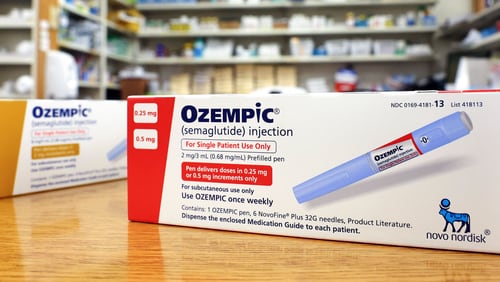The campaign of Republican gubernatorial hopeful David Perdue has filed a lawsuit challenging a controversial law approved last year that has given Gov. Brian Kemp’s reelection campaign a huge financial boost not available to his GOP challengers.
The lawsuit filed Thursday contends the new law gives Kemp a special, massive advantage when it comes to raising campaign cash, and it asks the courts to “level the playing field.”
The law — approved during the 2020 General Assembly session along partisan lines — allows Kemp and a few other top lawmakers and party nominees to create special committees that can raise unlimited contributions from donors, including during legislative sessions.
Kemp signed Senate Bill 221 — the leadership committee bill — into law without any public notice in May. Facing what will almost certainly be the most expensive gubernatorial reelection fight in Georgia history, his campaign quickly created the Georgians First Leadership Committee in July and has been raising big money from Capitol donors ever since. Challengers, such as Perdue, are not allowed to form such leadership committees under the Georgia law.
The lawsuit - which targets only Kemp’s leadership committee - states the U.S. Supreme Court has “never upheld the constitutionality of a law that imposes different contribution limits for candidates who are competing against each other.”
In announcing the lawsuit, Perdue said: “This unconstitutional law was spearheaded by Brian Kemp to protect himself and silence those who seek to challenge him. It reeks of cronyism and corruption.”
Cody Hall, spokesman for the Kemp committee, said, “David Perdue’s record of shady stock deals makes clear that he really doesn’t like playing by the rules, so this laughable lawsuit shouldn’t surprise anyone.”
The bill was spearheaded by Republican legislative leaders who said it would be better than current independent “dark-money” funds that cloak donors. They didn’t, however, explain why only some politicians should be able to avail themselves of the unlimited fundraising.
Many of the donors to the leadership committees are lobbyists, businesses and special interests with interest in legislation and state funding. Since the law was created, the Democratic House and Senate caucuses have also set up such funds even though they voted against creating the committees last year.
Even then, Democrats expressed concerns about the committees’ influence on legislation, since the funds can legally collect checks from lobbyists and special interests while lawmakers are considering bills. Under state law, the individual campaigns of Kemp and state lawmakers aren’t allowed to raise campaign money during the session, which starts Monday.
“We were all against that scheme,” said Senate Democratic Caucus Chairwoman Elena Parent, D-Atlanta. “I have serious misgivings about American campaign finance in general, in that it’s legalized corruption.
“But if that is what the system is going to be, you are foolish if you don’t engage in it.”
House Minority Leader James Beverly, D-Macon, said: “You don’t want a leader to say, ‘Vote for this bill because we just got $100,000.’ That won’t happen on my watch.”
The difference in what Kemp’s committee can raise and what individual candidates for office can collect is startling.
Statewide candidates, such as those running for governor, are currently allowed to raise $7,600 from individual donors for both the primary and general election, and $4,500 for a primary runoff. Lawmakers can raise $3,000 per election cycle from individual donors for the primary and general election and $1,600 for runoffs.
Those limits don’t apply to leadership committees that only Kemp, the eventual Democratic nominee for governor and a few legislative leaders can create. So, for instance, a company or business association seeking a tax break from the General Assembly could give $100,000 or more to such funds and do it while lawmakers are considering the tax break or while the governor is deciding whether to sign it into law.
Kemp backers had already had a political nonprofit called Keeping Georgia Strong that could take unlimited funds from donors, and it collected at least $45,000 from health care giant HCA, $15,000 from the nursing home lobby and $10,000 from the filmmakers PAC. But the nonprofit’s CEO, Capitol lobbyist Clay Huckaby, said last summer that it was being phased out after the leadership committee passed.
That’s because the new leadership committees are more advantageous for campaigns. Political nonprofits can’t — for instance — legally coordinate efforts directly with Kemp’s campaign. His leadership committee can, essentially making it an arm of his reelection bid.
Kemp’s political team has good reason to want a massive political war chest. Former President Donald Trump, who has influence on the state’s Republican base, has kept up his attacks against Kemp for not doing more to illegally overturn Georgia’s 2020 election results in his favor, and he has endorsed Perdue, a U.S. senator until he lost his seat in January 2021.
If Kemp, as expected, gets past the primary, he faces a rematch with his 2018 general election opponent, Democrat Stacey Abrams, who set fundraising records that year and whose voting rights group, Fair Fight, has raised more than $100 million since then.
While Abrams could add a leadership committee to her powerful fundraising arsenal, she would not be able to do it until the Democratic primary is decided in May, 10 months after Kemp created his committee.
Kemp reported in July that his reelection campaign had raised about $12 million, the highest amount ever by an incumbent seeking reelection with a year and a half to go before the next election. Many of those who donated — businesses and individuals with interest in legislation and funding — are also giving to his leadership committee, which has yet to report fundraising numbers for 2021.
Staff writer Greg Bluestein contributed to this article.
About the Author








